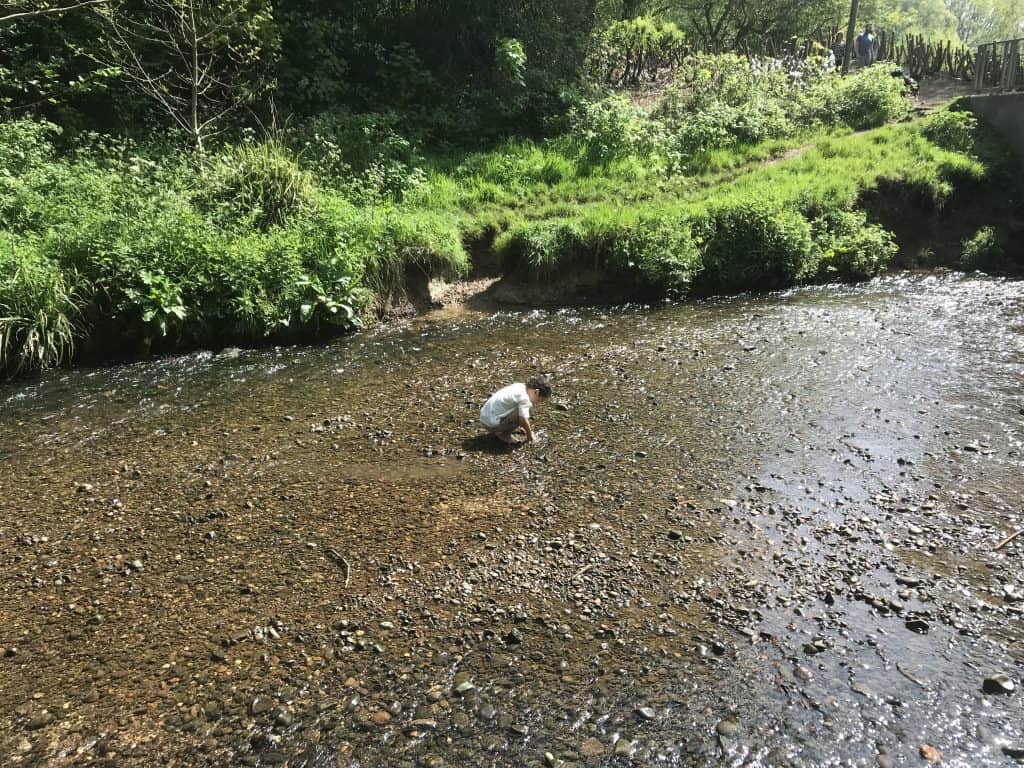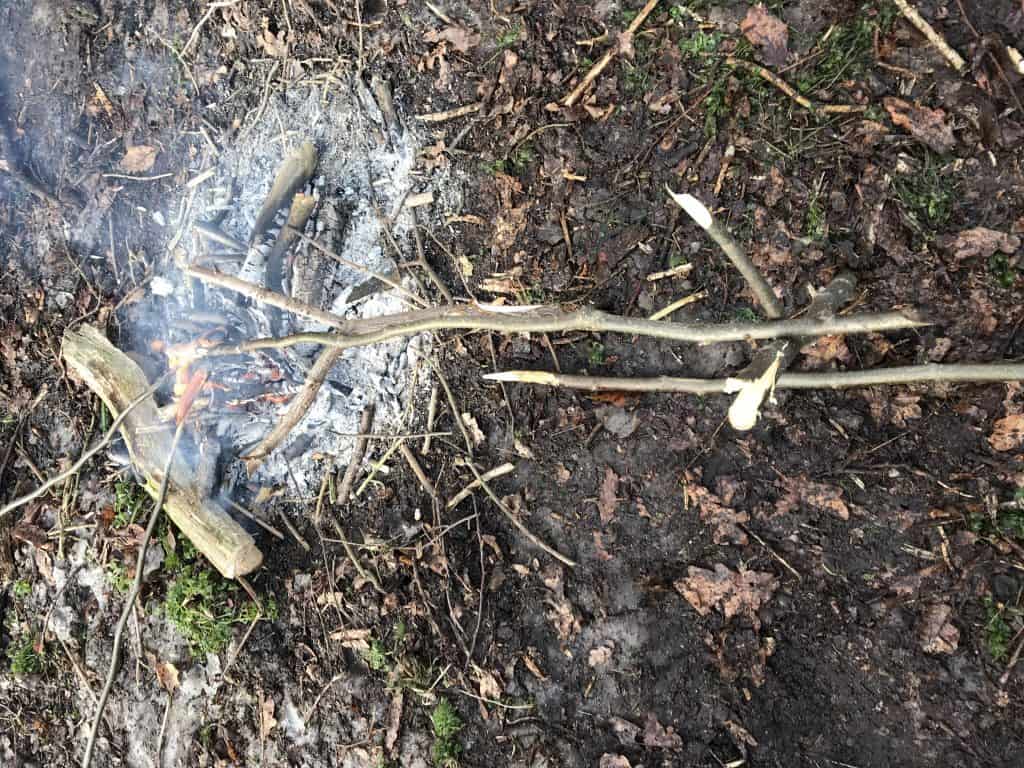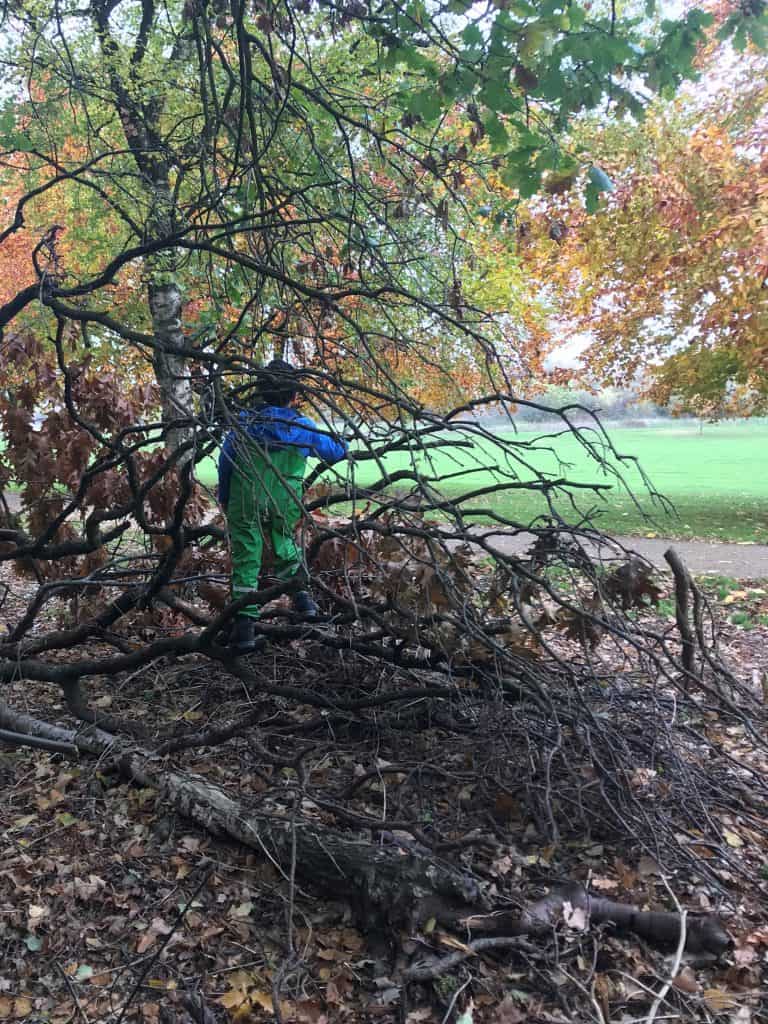It seems to be the latest buzz phrase when it comes to outdoor and extra-curricular activities associated with schools and nurseries so what is forest school exactly and why all the hype? We’ve been attending various ones for at least two years now so let’s delve a little into the what and the why.
What is Forest School?
According to The Forest School Association ‘Forest School is an inspirational process that offers all learners regular opportunities to achieve and develop confidence and self-esteem through hands-on learning experiences in a woodland or natural environment with trees. Forest School is a specialised learning approach that sits within and complements the wider context of outdoor and woodland education.’
So essentially these are inclusive, outdoor, nature-based sessions in which children get hands on with nature come rain or shine. The sessions are designed for the long term in order to achieve maximum benefits so typically these will last 6-12 weeks in a school setting. Those of us lucky enough to Home Educate usually attend throughout the year during all seasons (we have been known to attend sessions ankle deep in snow!).

Where does it come from?
Whilst Forest School may seem to be a recent phenomenon, the rich, Europe-wide movement of outdoor and nature-based activity goes back to at least the 1800s. From the Scandinavian ‘Friluftsliv’ movement which aimed to get people back to reconnect with nature thereby fostering their good health to Johan Pestalozzi Swiss pedagogue influenced by the Romantics, who emphasised outdoor activity as a way of enhancing general, moral and intellectual education.
The foundations for UK ‘Forest School’ were laid in the mid 1900s with the establishment of Woodcraft Folk, Margaret Macmillan’s first ‘open air nursery’ in London and The Outdoor Education Centres in the 1940s. The first Forest School in England opened in 1995 at Bridgwater College, Somerset after an inspiring trip to Denmark where they observed ‘Friluftsliv’ in action; largely outdoor, nature based child-led play. Their popularity has been increasing here ever since.
The benefits of Forest School
We are extremely fortunate in that where we are based a typical week will give us the choice of attending up to six, yes SIX! different forest school sessions. We really are spoilt for choice especially when you add in the fact that of those six only one is a fee paying session. Whilst the boys would love to attend all six, our schedule only allows for two sessions per week.
It is pretty common knowledge that spending time outdoors regularly is beneficial for people of all ages not just children. The benefits of spending time outdoors for mental health can be read here and for children specifically here
As more and more children spend time indoors and in front of a screen the importance of being outdoors cannot be emphasised enough. One of the reasons I decided to home educate was so we could spend more time being outdoors surrounded by nature. I did not want the boys growing up being afraid of ‘bad’ weather or not having a connection with nature so attending Forest school sessions has been a weekly ‘must-do’ for us.

Benefits of Forest School we’ve noticed.
This list is by no means exhaustive, however, here are some of the benefits I have personally observed in my children;
- An awareness and appreciation of their natural surroundings. They will often turn over logs or bark during walks just to observe what is going on underneath.
- Increase in self-confidence and perseverance. It may not seem like an important skill however, our eldest did not like climbing trees and often refused to try. Two years on and he’s an avid tree-climber. He will now challenge and push himself when previously he was prone to giving up very easily.
- Collaborative skill development. Their ability to work with others in a team and problem solve through various games and tasks has come a long way. It is especially rewarding to watch the kids work and manage beautifully in mixed age and ability groups. There is still room for improvement but the progress is there.
- Improvement in gross and fine motor skills. These are developing through the varied activities they participate in on a weekly basis. From beading and drilling to climbing and swinging.
- Physical activity. As a mother of boys I’ve realised that allowing them daily physical activity helps them de-stress and use up a lot of the energy they seem to constantly have flowing through their bodies. There are sessions where they just want to run, jump around and chase each other. The beauty of forest school child-led sessions means they’re given time and space to do this without being frowned upon.
- A love of the outdoors. I can honestly say the boys love being outdoors no matter the weather. We just make sure to stay warm and dry – take a few snacks and we’re sorted for a few hours. Building this love for the outdoors has developed over time and is not something that happens instantly. Attending regular forest school sessions has definitely helped as has spending time outdoors for unstructured play and being conscious of our natural surroundings. Talking and discussing what we see outside and appreciating the beauty of creation also helps.
For more benefits head over here to read the ten benefits of Forest school
Why we love attending Forest School.

We love Forest school for a multitude of reasons; that’s probably a whole other blog post of its own! However, instilling a love and appreciation for the outdoors is probably the number one reason. This fostering of a relationship between my children and nature is priceless. The fact that this happens in a holistic, child-led and nurturing manner makes the all-round experience even more inspiring. Whilst it appears that they’re just den-building or just climbing trees or just lighting fires on the surface; so much more is going on deep inside the core of them